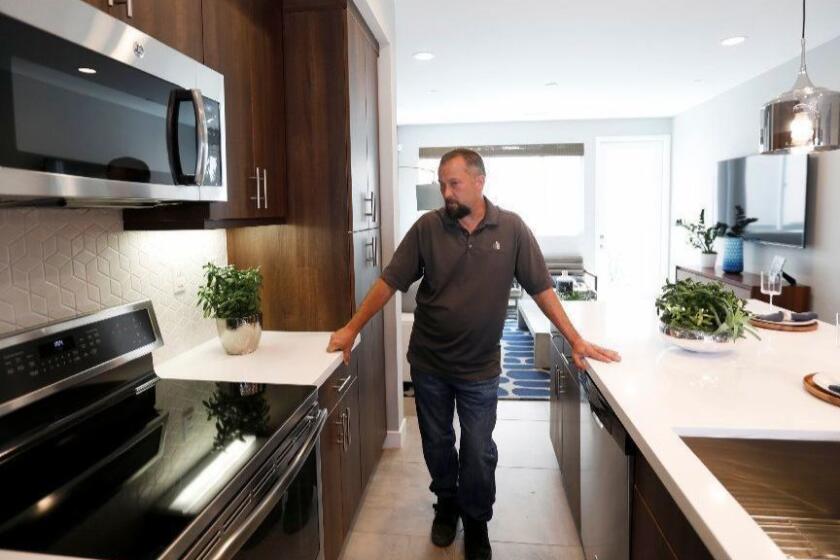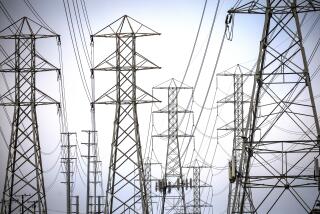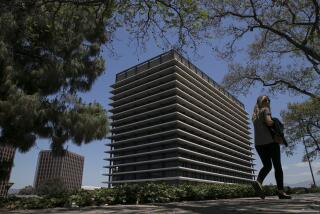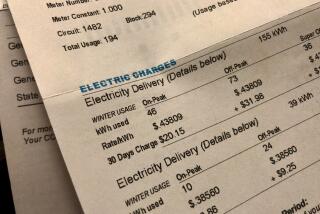SoCalGas shouldn’t be using customer money to undermine state climate goals, critics say
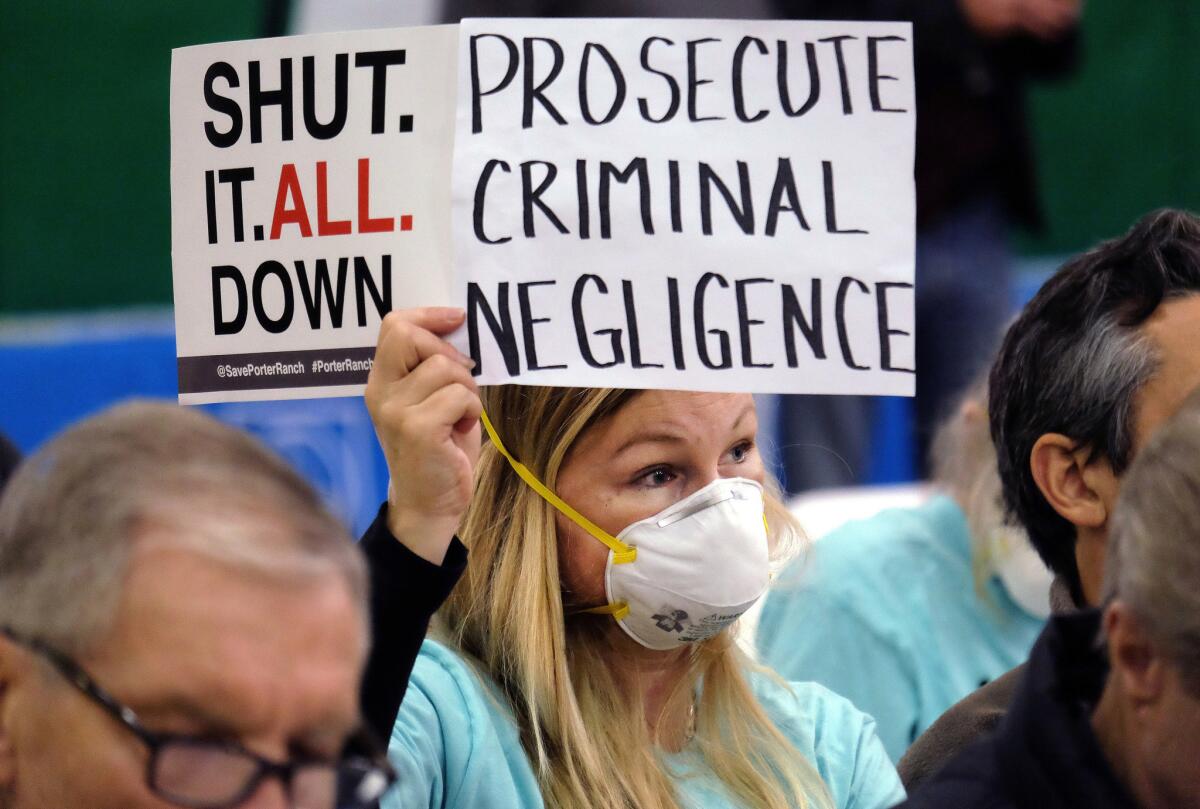
The Gas Genius social media accounts feature softly lit images of families and millennials cooking on outdoor grills, enjoying warm baths and relaxing by roaring fire pits.
“Will 2020 be the year you upgrade your home to natural gas?” asked a recent caption on the Gas Genius Instagram.
The posts are part of a national campaign to highlight the virtues of natural gas, one of the main contributors to global climate change, as California and other states make plans to phase out fossil fuels. The campaign is led by the American Public Gas Assn., a trade group for municipal gas providers.
But some of the funding has come from unknowing customers of Southern California Gas Co., newly disclosed documents show.
The Los Angeles-based utility — one of America’s largest private gas companies — has been charging ratepayers, rather than shareholders, for some of its contributions to APGA and other gas industry advocacy groups, according to data shared with The Times. That means money paid by SoCalGas customers on their monthly bills has been used to support groups working to promote natural gas and preserve the gas utility business model.
Critics say it’s wrong for SoCalGas to spend customer money in ways they see as at odds with California’s climate change policies.
SoCalGas argues that ratepayer funding is appropriate because it’s trying to help the state meet its climate goals, not undermine them. The company funds organizations “that provide benefits to our customers, including energy efficiency programs and research that help keep our customers’ monthly bills affordable, and programs that combat climate change and air pollution from every sector of the economy,” spokesman Chris Gilbride said in an email.
Monopoly utilities such as SoCalGas can generally spend shareholder money however they want. But they’re supposed to spend ratepayer money only on projects that benefit ratepayers — infrastructure upgrades that improve safety, for instance, or outreach to customers about rebate programs.
Consumer watchdogs at the California Public Utilities Commission are working to determine whether the gas company’s use of customer money to support industry groups is appropriate.
But based on the information available so far, it appears the utility’s spending may be part of a “systematic and intentional response to the threat” posed by California’s increasingly aggressive efforts to slash planet-warming emissions, said Daniel Buch, a supervisor at the PUC’s Public Advocates Office.
“Using ratepayer funds to undermine the state’s interests and goals is inappropriate,” Buch said.
The Public Advocates Office compelled SoCalGas to turn over data last month detailing its contributions to several industry groups and revealing how much of that money came from ratepayers versus shareholders. The independent watchdog office shared the data with the Los Angeles Times.
California’s other investor-owned utilities could also face scrutiny over their funding of industry groups. Buch said the Public Advocates Office has asked for similar data from Southern California Edison, Pacific Gas & Electric and San Diego Gas & Electric, which like SoCalGas is owned by Sempra Energy.
For SoCalGas, at least, the dollar figures are relatively small.
The utility has given $50,000 to APGA each of the last three years, charging half that money to ratepayers and half to shareholders. SoCalGas serves nearly 6 million homes and businesses from the Central Valley to the U.S.-Mexico border, meaning $25,000 comes out to less than half a cent per customer.
The gas company could easily cover the entirety of those contributions with shareholder funds. In its latest federal financial filing, the utility’s corporate parent, San Diego-based Sempra, reported $813 million in earnings in the third quarter of 2019, with $106 million in cash on hand as of Sept. 30.
This isn’t the first time SoCalGas has been accused of using ratepayer dollars to try to keep its customers hooked on gas.
The Public Advocates Office has sparred with SoCalGas over the company’s alleged use of customer funds to fight energy efficiency rules. The watchdog also discovered that SoCalGas used customer money to help launch a pro-gas advocacy group called Californians for Balanced Energy Solutions, or C4BES.
SoCalGas says its infrastructure has a vital role to play in combating climate change. The company plans to replace 20% of the fossil gas in its pipelines with climate-neutral biomethane, also known as renewable gas, by 2030, and later add large amounts of renewable hydrogen and other non-fossil fuels.
Some environmentalists are skeptical those alternate fuels will pan out. But SoCalGas officials say taking advantage of existing gas infrastructure is an easier, cheaper climate solution than asking consumers to replace their gas appliances with electric versions, which is preferred by many activists.
“With growing renewable gas supplies, promising renewable hydrogen technologies, micro-grids and residential fuel cells, our natural gas system is a critical asset that can help California achieve its climate goals, without sacrificing reliability or making energy unaffordable,” Gilbride said.
Fending off threats to natural gas
APGA commissioned the Gas Genius social media blitz through a task group led by a former SoCalGas employee, who now runs a public utility in Tennessee. That’s according to documents obtained by the Climate Investigations Center, a nonprofit watchdog group, and shared with The Times.
APGA’s advocacy has included pushing the Trump administration to overhaul regulations and fighting policies that promote zero-emission construction.
Southern California Gas is engaged in a wide-ranging campaign to preserve the role of its pipelines in powering society.
SoCalGas has participated in some of those efforts.
For instance, a SoCalGas employee helped develop alternate versions of two climate change resolutions APGA was trying to block at the U.S. Conference of Mayors, according to emails obtained by the Climate Investigations Center. One of the original resolutions called for a “comprehensive national response to climate change.” The other expressed support for a transition to net-zero-energy buildings by 2050.
In APGA’s alternate versions, references to a “carbon-free” economy and “net-zero” buildings were replaced by calls for a “low-carbon” economy and a “lower ... carbon footprint” for buildings. Both of the original resolutions opposed by APGA were approved by the mayors earlier this year.
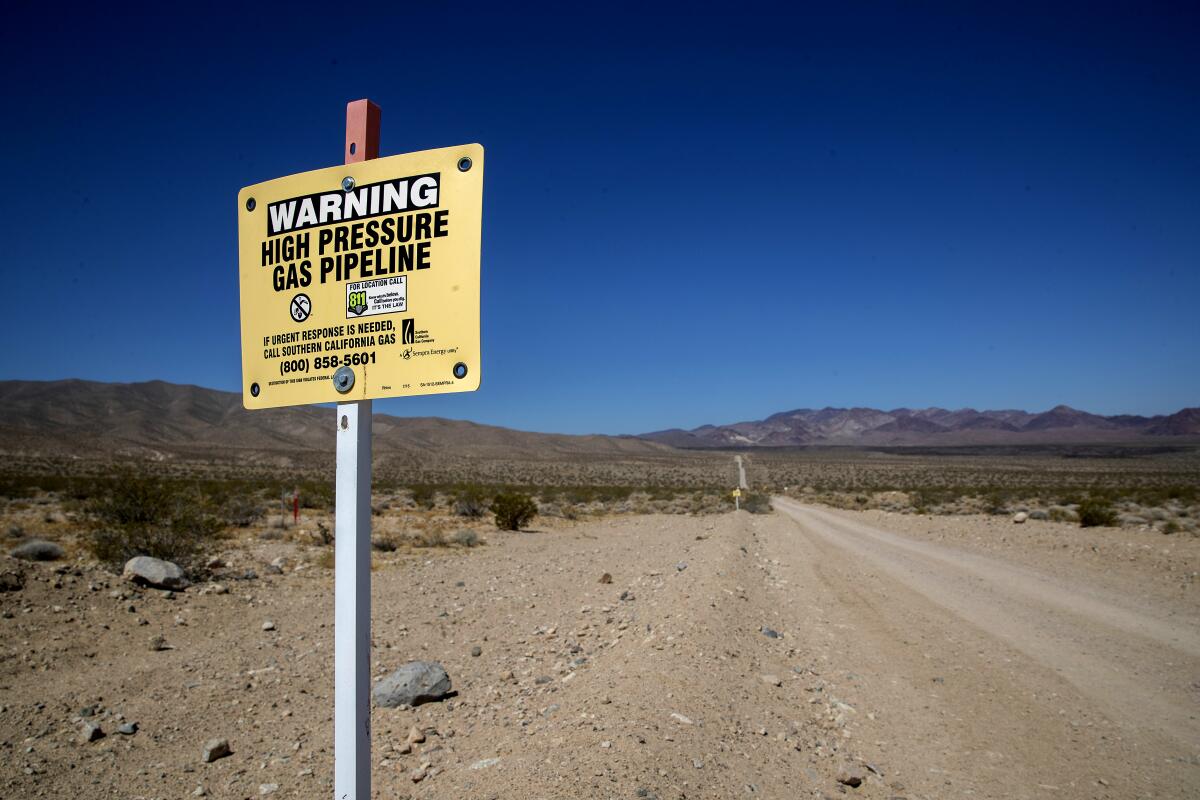
APGA says its advocacy benefits SoCalGas customers, in part because natural gas produces fewer planet-warming emissions than other fuels people use to keep warm, such as heating oil and propane. Natural gas-fired electricity has also helped wean America off coal, the most polluting fossil fuel.
Natural gas “provides a multitude of benefits to energy consumers, communities and our country,” APGA said in a written statement to The Times.
“Families in California and across the country benefit from balanced energy policies that preserve consumer choice and affordability and provide a pathway for a sustainable energy future,” APGA said.
Ratepayer funding for advocacy groups
Utilities typically argue that trade groups provide technical know-how and industry updates that help them serve customers, and therefore customers ought to fund their membership in those groups, said Matt Freedman, an attorney with the Utility Reform Network, an independent consumer watchdog.
But in many cases, “there are big questions about whether these trade associations add value from the ratepayer perspective,” Freedman said.
“If it’s pure political advocacy, there’s no good argument for ratepayers to fund that,” he said.
Curtis Stone has been using induction cooktops for years.
In response to data requests from the Public Advocates Office, SoCalGas acknowledged charging ratepayers for contributions to several advocacy groups.
Since 2017, the California Natural Gas Vehicle Coalition received $188,000 in ratepayer funds and $29,250 in shareholder funds from SoCalGas. The coalition describes itself as “an association of natural gas vehicle and engine manufacturers, utilities, fuel providers and fleet operators” looking to reduce California’s dependence on petroleum — in part by pushing lawmakers and regulators to promote adoption of vehicles powered by natural gas.
Asked how its work benefits SoCalGas customers, the coalition’s president, Thomas Lawson, pointed out that California cities have some of the nation’s worst air pollution. Replacing diesel trucks with vehicles powered by cleaner natural gas, Lawson said, “can provide relief for those Californians right now.”
Environmentalists say electric cars are better than natural gas vehicles, because they’re powered by California’s increasingly clean electricity supply.
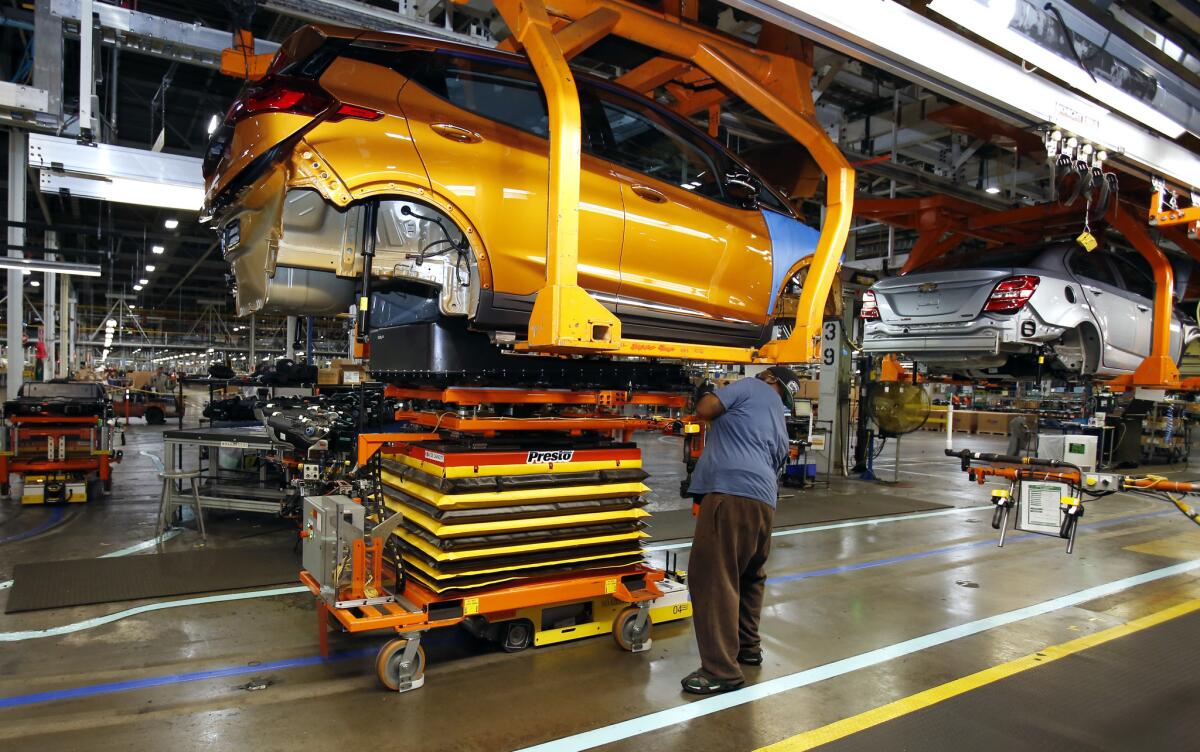
Another group, the Coalition for Renewable Natural Gas, has gotten nearly $90,000 from SoCalGas since 2017, with the funding split about evenly between ratepayers and shareholders. The coalition advocates at the federal and state levels for policies that promote use of renewable gas, which is captured from dairy farms, landfills, sewage treatment plants and other industrial operations that would otherwise spew the heat-trapping gas into the atmosphere.
The coalition is participating in a Public Utilities Commission proceeding to develop programs for reducing emissions from residential and commercial buildings. Another SoCalGas-funded group, C4BES, withdrew from that proceeding in August after it was accused of being a front for the gas company.
The renewable gas coalition’s chief executive, Johannes Escudero, said in an email that SoCalGas is one of more than 200 member companies “who are committed to the sustainable development, deployment and utilization of renewable natural gas produced from methane that would otherwise be flared and wasted or, worse, vented fugitively into the atmosphere as a short-lived climate pollutant many times more potent than carbon.”
The group’s work helps ensure “that present and future generations, including SoCalGas’ ratepayers, have access to domestic, renewable, clean fuel and energy,” Escudero said.
Growing the market for natural gas
The American Gas Assn. has received more money from SoCalGas than any of the other groups the Public Advocates Office asked about. The gas company’s chief executive, Bret Lane, sits on AGA’s board of directors.
SoCalGas has given more than $2.1 million in ratepayer funds to AGA over the last three years, and anticipates contributing another $191,000 in customer money and $31,000 in shareholder money this year, the company told the consumer watchdog.
The gas company is a member of AGA’s Sustainable Growth Committee, which works to identify “opportunities for natural gas utility growth,” according to documents obtained by the Center for Climate Investigations. A 2018 memo discusses the committee’s efforts to build a case against gas alternatives, and describes renewable gas “as a conduit to environmental organizations” that might “mitigate the opposition’s fervor” against new gas pipelines.
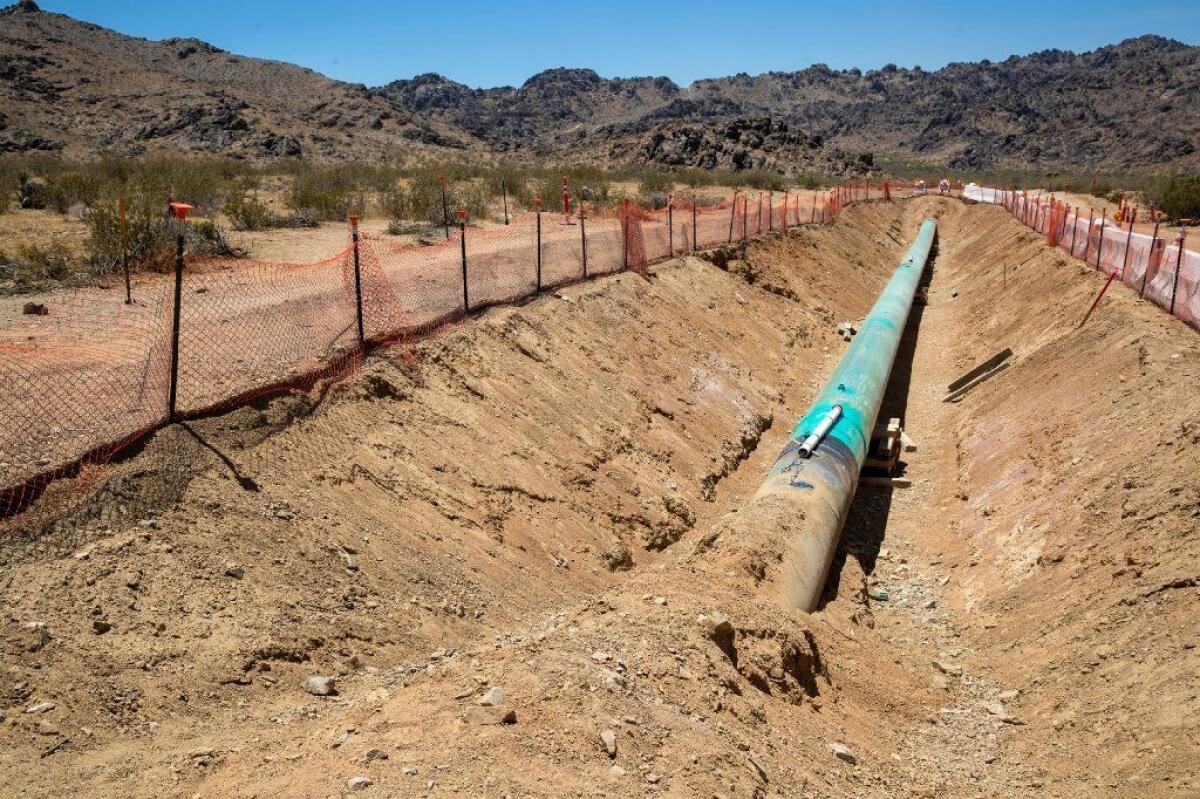
The gas company is also a member of AGA’s committee on building energy codes, whose “guiding principles” say AGA “will continue to assert the value of natural gas options and oppose ‘electrification’ efforts that would prohibit, negatively impact, or limit consumer choice for the direct use of natural gas.”
In a statement to The Times, AGA described gas as “an essential part of plans to reduce” climate emissions. Replacing gas appliances with electric versions, the association said, is “a costly approach for a small amount of emissions reduction” that could “be burdensome to consumers, the economy and have profound impacts and costs on the electric sector, which is not currently built to handle the energy load” of the natural gas delivery system.
SoCalGas says AGA, APGA, the Coalition for Renewable Natural Gas and the Natural Gas Vehicle Coalition all do work that benefits the utility’s customers. SoCalGas pointed to the potential air-quality benefits of natural gas vehicles, as well as state policies aimed at reducing emissions of short-lived climate pollutants. The company says it can help achieve those policies by capturing renewable gas from industrial facilities before it enters the atmosphere.
A battle over furnaces
The Public Advocates Office has been sparring with SoCalGas over its use of ratepayer funds for several years.
In 2017, the consumer watchdog accused the company of working alongside APGA and AGA to try to block a new efficiency standard for residential gas furnaces. SoCalGas insisted it had done nothing wrong, arguing the proposed federal rule would harm consumers by raising the cost of furnaces.
But a SoCalGas program manager suggested an additional motive, writing in an email obtained by the Public Advocates Office that the rule “will increase the cost of a furnace if adopted and as such could create fuel switching away from gas.... The gas industry needs to be actively involved with this issue.”
Citing the furnace rule and several other actions, the Public Advocates Office accused the company of spending ratepayer dollars in a “concerted effort to undermine the state’s energy efficiency goals.” The PUC ultimately ordered SoCalGas to stop conducting energy efficiency advocacy funded by ratepayers.
But the consumer watchdog now says the company initially violated that order, charging ratepayers at least $6,000 for additional advocacy, and later tried to hide the extent of its violations. Last month, the PUC directed SoCalGas to explain why it shouldn’t be sanctioned.
“My concern is that it’s endemic of a larger cultural problem, a willingness to do as you please and not be concerned with what the regulator is going to think if you get caught,” said Mike Campbell, a program manager at the Public Advocates Office.
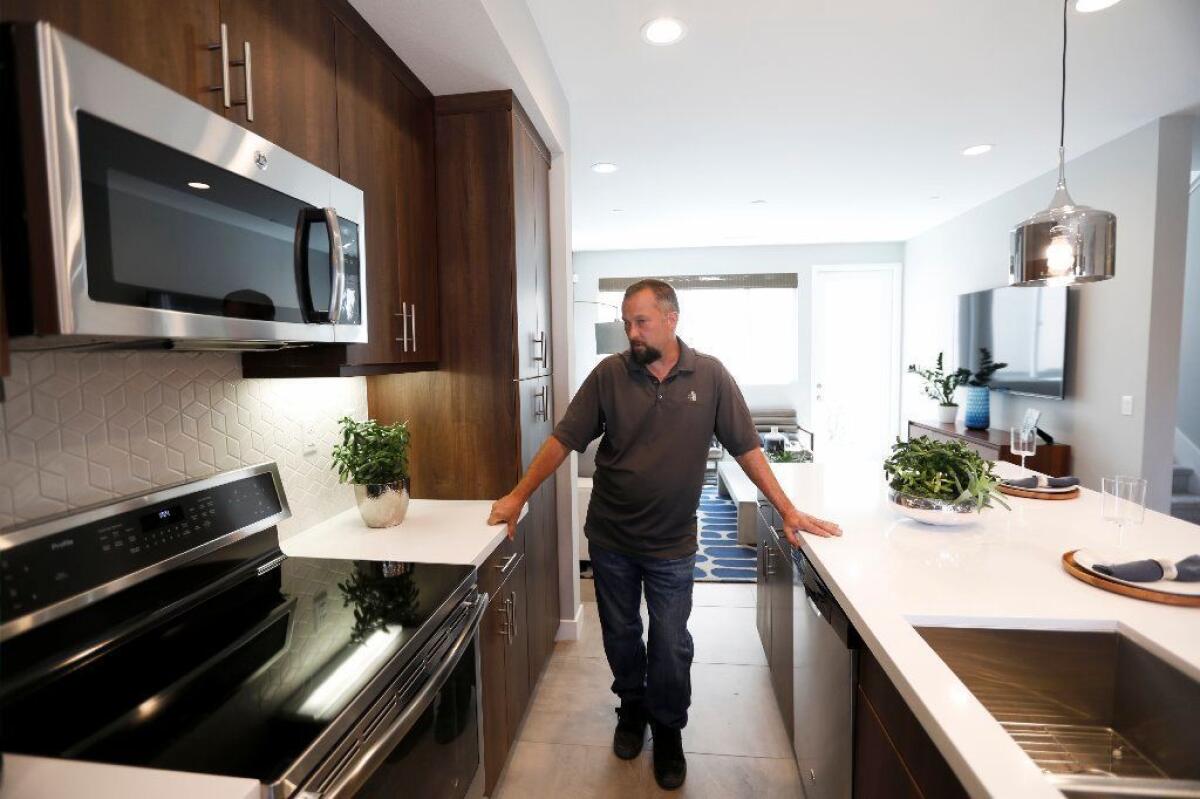
The consumer watchdog has also asked the PUC to deny shareholders their customary incentive payments for the gas company’s energy efficiency advocacy in 2016 and 2017, arguing the payments are supposed to reward good behavior. There’s not much money at stake — $180,000 in total incentives, which comes out to a fraction of a penny per Sempra Energy share — but the Public Advocates Office says ratepayers should get to keep the money.
“The public should not be spending a dollar on efforts to undermine our climate objectives,” said Matt Vespa, an attorney with the nonprofit law firm Earthjustice who has represented the Sierra Club in regulatory battles with the gas company.
SoCalGas has argued shareholders are entitled to their $180,000 reward because the company did nothing wrong.
In response to allegations that the company violated the PUC’s order to stop conducting ratepayer-funding advocacy, SoCalGas told the commission it ended its advocacy work within 40 days of the order, explaining that some of the continued work involved “wrapping up and transitioning off projects.”
The utility also promised to transfer the cost of that work from ratepayers to shareholders “in an abundance of caution and as a showing of good faith.”
More broadly, SoCalGas has objected to the Public Advocates Office’s characterization of its energy efficiency advocacy. The watchdog’s negative portrayal of the gas company “is directly contradicted by SoCalGas’ track record in achieving gas energy efficiency savings,” the utility wrote in a 2017 PUC filing.
